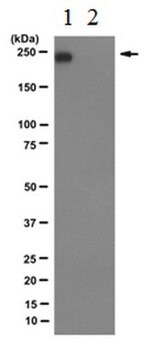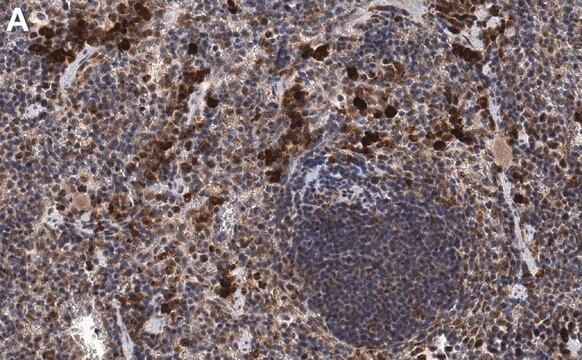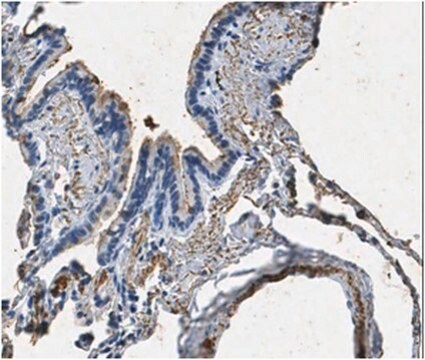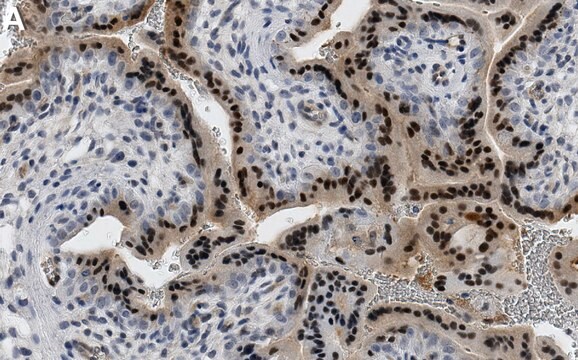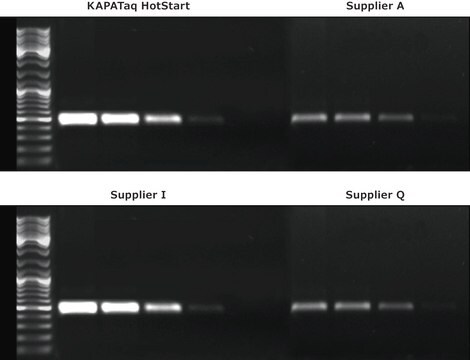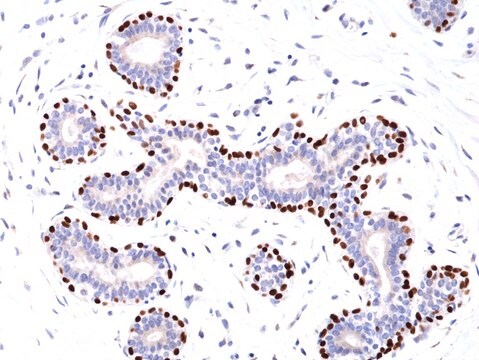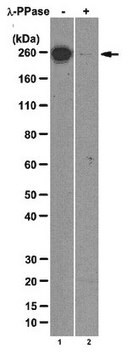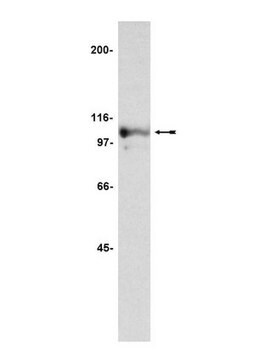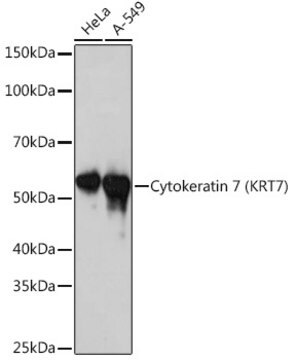About This Item
ICC
IHC (p)
WB
immunocytochemistry: suitable
immunohistochemistry (formalin-fixed, paraffin-embedded sections): suitable
western blot: suitable
Recommended Products
biological source
mouse
Quality Level
conjugate
unconjugated
antibody form
purified antibody
antibody product type
primary antibodies
clone
364-5-10-5, monoclonal
mol wt
calculated mol wt 76.61 kDa
observed mol wt ~110 kDa
purified by
using protein G
species reactivity
mouse, human
packaging
antibody small pack of 100 μg
technique(s)
flow cytometry: suitable
immunocytochemistry: suitable
immunohistochemistry (formalin-fixed, paraffin-embedded sections): suitable
western blot: suitable
isotype
IgG1, lambda
epitope sequence
Unknown
Protein ID accession no.
UniProt accession no.
shipped in
dry ice
target post-translational modification
unmodified
Gene Information
human ... NCL(4691)
General description
Specificity
Immunogen
Application
Evaluated by Western Blotting in HeLa cell lysates.
Western Blotting Analysis: A 1:1,000 dilution of this antibody detected Nucleolin in HeLa cell lysates.
Tested Applications
Immunohistochemistry Applications: A 1:250-1,000 dilution from a representative lot detected Nucleolin in human breast cancer and human kidney tissue sections.
Immunohistochemistry Applications: A 1:10 dilution from a representative lot detected Nucleolin in ovarian cancer metastasis-infiltrated human lymph node tissue.
Flow Cytometry Analysis: A representative lot detected Nucleolin in NK-92MIO cells gated and ungated for CD56.
Immunocytochemistry Analysis: A 1:250 dilution from a representative lot detected Nucleolin in A431 and HEK293 cells
Western Blotting Analysis: A representative lot detected Nucleolin in Western Blotting applications. (Kour, R., et al. (2019). RNA. 25(10):1377-1392).
Note: Actual optimal working dilutions must be determined by end user as specimens, and experimental conditions may vary with the end user
Physical form
Storage and Stability
Other Notes
Disclaimer
Not finding the right product?
Try our Product Selector Tool.
Storage Class Code
12 - Non Combustible Liquids
WGK
WGK 2
Flash Point(F)
Not applicable
Flash Point(C)
Not applicable
Certificates of Analysis (COA)
Search for Certificates of Analysis (COA) by entering the products Lot/Batch Number. Lot and Batch Numbers can be found on a product’s label following the words ‘Lot’ or ‘Batch’.
Already Own This Product?
Find documentation for the products that you have recently purchased in the Document Library.
Our team of scientists has experience in all areas of research including Life Science, Material Science, Chemical Synthesis, Chromatography, Analytical and many others.
Contact Technical Service